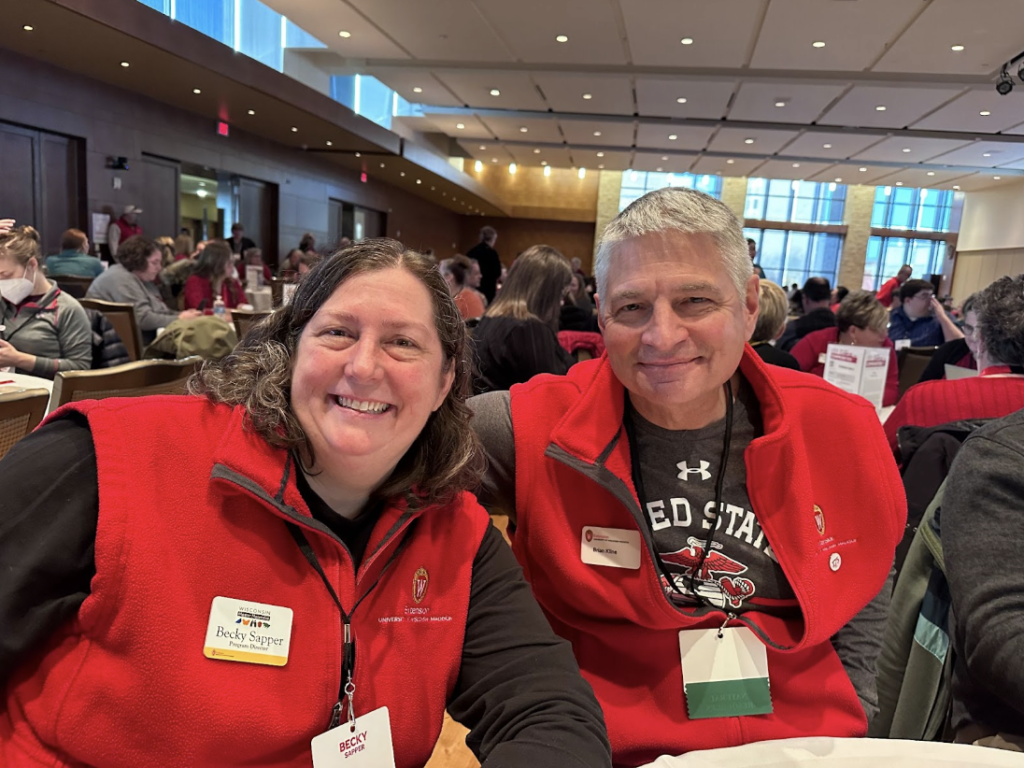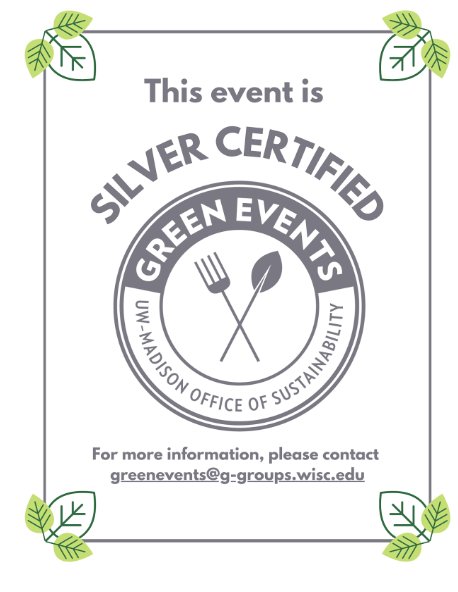The UW–Madison Division of Extension recently hosted its annual All-Colleague Conference in early November, bringing our staff together from across Wisconsin to share moments of learning, celebration, and connection.
During the conference, Extension’s Natural Resources Institute (NRI) staff shared their program stories and inspired conversations about how we can best support Wisconsin communities. We also shared the ways that NRI programs connect with campus resources to address the critical challenges faced by Wisconsin communities.
Chancellor Mnookin joined the conference to welcome Extension colleagues to campus and to learn more about the ways in which programs embody the Wisconsin Idea.

As part of Extension, NRI upholds the organizational values of community, discovery, inclusiveness, relationships, and respect—all of which help us build programs to serve natural resource education, management, and conservation across Wisconsin communities.
NRI Director Tricia Gorby explains that the conference was designed to exemplify these important values while providing an opportunity for our state-wide staff to connect and enhance our community efforts.
“We were able to bring our staff together to better connect, inspire, and learn,” Gorby says, “which provided an opportunity to build our excellence in outreach and research. This important internal work gives us the capacity to do even more in our communities.”
At the NRI meeting, program directors and specialists discussed everything from water education and volunteering in Latine communities to women woodland owner support programs—inspiring future initiatives involving inclusiveness in natural resources education in Wisconsin.

Director of the Wisconsin Master Naturalist Program Becky Sapper inspired peers with a presentation on her work assessing the effect of outdoor naturalist education on our mental and physical wellbeing.
Sapper explained that, throughout the Master Naturalist program, which offers volunteers thorough land-based knowledge of Wisconsin ecosystems, she has observed emerging themes about the overall wellness benefits of being outside. Her conference presentation joined many others in inspiring new ideas, generating solutions to problems, and gathering support across the institution. They were also joined by invited keynote speakers focusing on the nature and wellness connection.
In line with Sapper’s findings, the NRI meeting encouraged moments of mindfulness to help staff visualize our work in nature and carry those reflections into our program initiatives.
The conference also offered a space for staff to discuss challenges they have faced and to generate potential solutions through conversations with colleagues, facilitating a more holistic learning process.
“Learning involves not just sharing successes,” Gorby says, “but also those hard moments and challenges we all experience, and importantly how we have adapted.”

As another way to exemplify the group’s principles and values, the Institute planning team sought out help from the UW Office of Sustainability. Plastic use was limited, staff were encouraged to adopt rideshares and public transportation, and superfluous food products were minimized to ensure we limit our waste in the environment while coordinating efforts to protect it. As a result, the Institute meeting was certified as a Silver-certified Green Event.
The Wisconsin State Climatology Office, led by State Climatologist Steve Vavrus, also joined the Institute meeting to help orient program goals toward climate knowledge and adaptation, and further extend campus resources to communities across the state.
“What I appreciate most about opportunities to gather for an all-colleague conference is just the ability to have informal conversations in the hallways and in between talks… and where those conversations take us,” Sapper shared.
In the next year, our programs are excited to build on the connections made with their colleagues and to continue to fulfill NRI’s responsibilities for inclusive, respectful, and innovative support for Wisconsin communities, and our shared resources.

